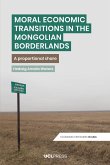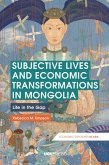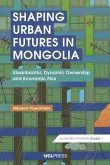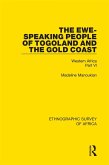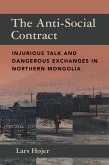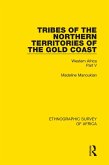Mongolia's mining sector, along with its environmental and social costs, have been the subject of prolonged and heated debate. This debate has often cast the country as either a victim of the 'resource curse' or guilty of 'resource nationalism'.
In The State, Popular Mobilisation and Gold Mining in Mongolia, Dulam Bumochir aims to avoid the pitfalls of this debate by adopting an alternative theoretical approach. He focuses on the indigenous representations of nature, environment, economy, state and sovereignty that have triggered nationalist and statist responses to the mining boom. In doing so, he explores the ways in which these responses have shaped the apparently 'neo-liberal' policies of twenty-first century Mongolia, and the economy that has emerged from them, in the face of competing mining companies, protest movements, international donor organizations, economic downturn, and local and central government policies.
Applying rich ethnography to a nuanced and complex picture, Bumochir's analysis is essential reading for students and researchers studying the environment and mining, especially in Central and North East Asia and post-Soviet regions, and also for readers interested in the relationship between neoliberalism, nationalism, environmentalism and state.
Praise for The State, Popular Mobilisation and Gold Mining in Mongolia
'Engaging and comprehensive reading. This book appeals a great deal to both academic and non-academic readers.'
*Études mongoles et sibériennes, centrasiatiques et tibétaines
'this work is an important contribution to different topics in the broader social movement literature, such as the recent debate on discursive opportunity structures and anti-mining movements'
Mobilization: An International Quarterly
'A delightful and clear read'
Journal of the Royal Anthropological Society (JRAI)
In The State, Popular Mobilisation and Gold Mining in Mongolia, Dulam Bumochir aims to avoid the pitfalls of this debate by adopting an alternative theoretical approach. He focuses on the indigenous representations of nature, environment, economy, state and sovereignty that have triggered nationalist and statist responses to the mining boom. In doing so, he explores the ways in which these responses have shaped the apparently 'neo-liberal' policies of twenty-first century Mongolia, and the economy that has emerged from them, in the face of competing mining companies, protest movements, international donor organizations, economic downturn, and local and central government policies.
Applying rich ethnography to a nuanced and complex picture, Bumochir's analysis is essential reading for students and researchers studying the environment and mining, especially in Central and North East Asia and post-Soviet regions, and also for readers interested in the relationship between neoliberalism, nationalism, environmentalism and state.
Praise for The State, Popular Mobilisation and Gold Mining in Mongolia
'Engaging and comprehensive reading. This book appeals a great deal to both academic and non-academic readers.'
*Études mongoles et sibériennes, centrasiatiques et tibétaines
- '... gives a fascinating insight into the emergence and evolution of the Ongi River Movement and its leader, Ts. Munkhbayar, into the policy-making process and into attempts to regulate the mining economy and capitalism in Mongolia.'
Nomadic Peoples
'this work is an important contribution to different topics in the broader social movement literature, such as the recent debate on discursive opportunity structures and anti-mining movements'
Mobilization: An International Quarterly
'A delightful and clear read'
Journal of the Royal Anthropological Society (JRAI)
Dieser Download kann aus rechtlichen Gründen nur mit Rechnungsadresse in A, D ausgeliefert werden.



